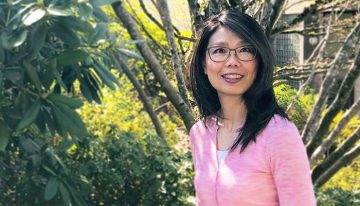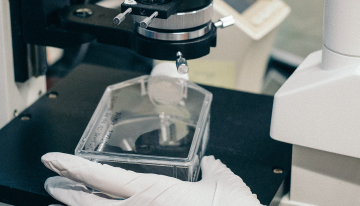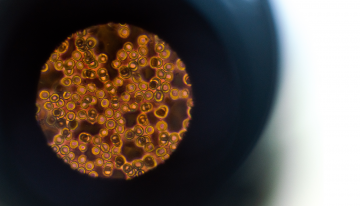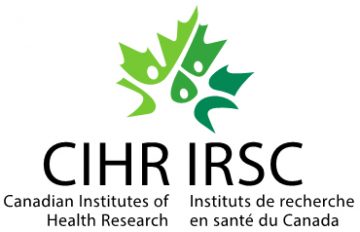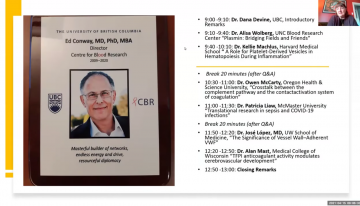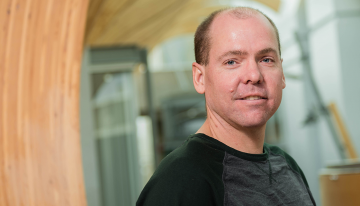News
Building community and connection: The CBR’s Health and Wellness Committee fosters wellbeing through virtual times
May 5, 2021
The CBR Health and Wellness Committee has worked to create an inclusive, supportive and connected community since 2016, by engaging CBR members in social and physical activities. Despite the transition to virtual events, the team’s events continued to be popular and well-attended.
Dr. Agnes Lee appointed as the Associate Executive Director of the Vancouver Coastal Health Research Institute (VCHRI)
May 3, 2021
We are pleased to announce the appointment of Dr. Agnes Lee as Associate Executive Director of the Vancouver Coastal Health Research Institute (VCHRI), effective May 1, 2021. In her executive leadership role with VCHRI, Dr. Lee will oversee activities related to clinical research and clinical trial administration within the VCH research community.
Dr. Hugh Kim Awarded Network for Canadian Oral Health Research Grant
April 29, 2021
Dr. Kim obtained a $40,000 grant and brought together a team of researchers from UBC, the University of Toronto, and the Canadian Blood Services to collaborate on the project “Deciphering the molecular links between periodontitis and ischemic cardiovascular disease”. Co-investigators include Dr. Ed Pryzdial, Postdoctoral Fellow Dr. Manoj Paul from the Kim Lab and UBC Faculty of Dentistry researchers.
Stem Cell Therapies in the Canadian Market (Part 2): Strengthening Regulations & Moving Forward
April 29, 2021
This blog, the second in a two-part series, delves into the lack of regulatory clarity in the Canadian context that allows illegal clinics to exist, and the funding challenges that slow down legitimate stem cell products from reaching the Canadian market.
Stem Cell Therapies in the Canadian Market (Part 1): The Challenge of Unapproved Treatments
April 22, 2021
This blog, the first in a two-part series, addresses the outbreak of unsafe stem cell treatments across Canada, why patients would seek out unapproved stem cell therapies, and some potential solutions to address the issue.
From CounterFlow to Infection-Resistant Catheter Coatings: A Look into CBR Projects
April 20, 2021
From developing a life-saving powder to novel catheter coatings, we were delighted to chat with researchers from both the Kastrup and Kizhakkedathu labs to learn more about their respective CIHR-funded projects.
CBR Symposium in Honour of Dr. Ed Conway – Apr 15, 2021
April 19, 2021
This playlist is a 3-part recording the Symposium in Honour of Dr. Ed Conway, which took place online via Zoom on Thursday April 15, 2021.
Cloud computing support accelerates COVID-19 vaccine improvements
April 14, 2021
For the last 11 months, UBC biochemistry and molecular biology professor Prof. Leonard Foster and his team have been studying how SARS-CoV-2 – the virus responsible for COVID-19 – attacks the human body, in hopes of developing a more targeted vaccine with fewer side effects.
Meet the Researcher: Dr. Peter Schubert
April 8, 2021
Our writers had the pleasure of chatting with Dr. Peter Schubert, a Principal Investigator with the UBC Centre for Blood Research (CBR) and the principal manager of the Blood4Research Facility, about his background, research, and advice for young scientists.
2020: The Year No One Expected – Challenges Researchers Face during a Global Pandemic
April 1, 2021
Sarah Longo’s personal and engaging story describing the challenges she faced starting a new research position in the middle of the pandemic was awarded runner up in this year’s Lay Science Writing Competition.




